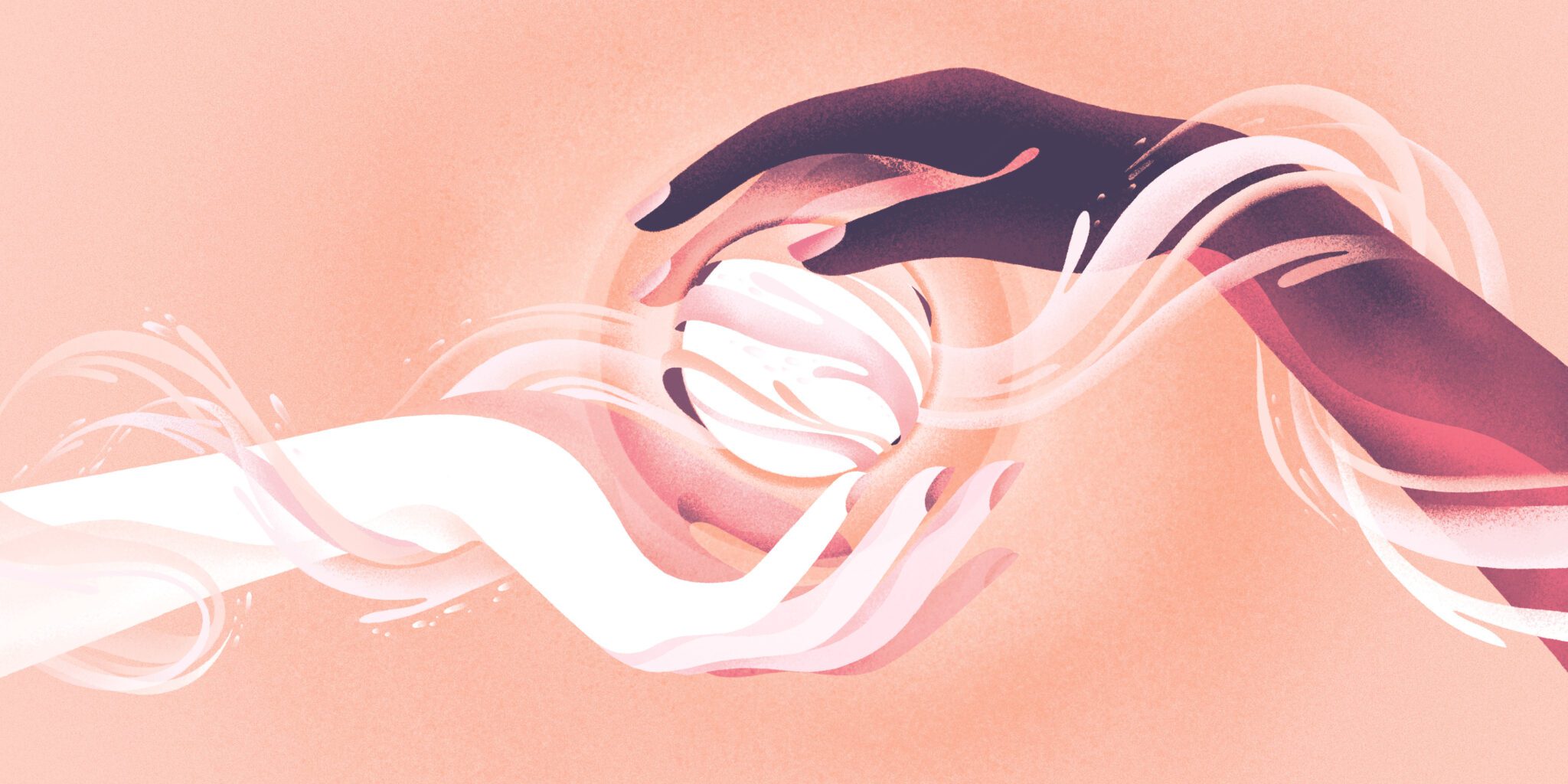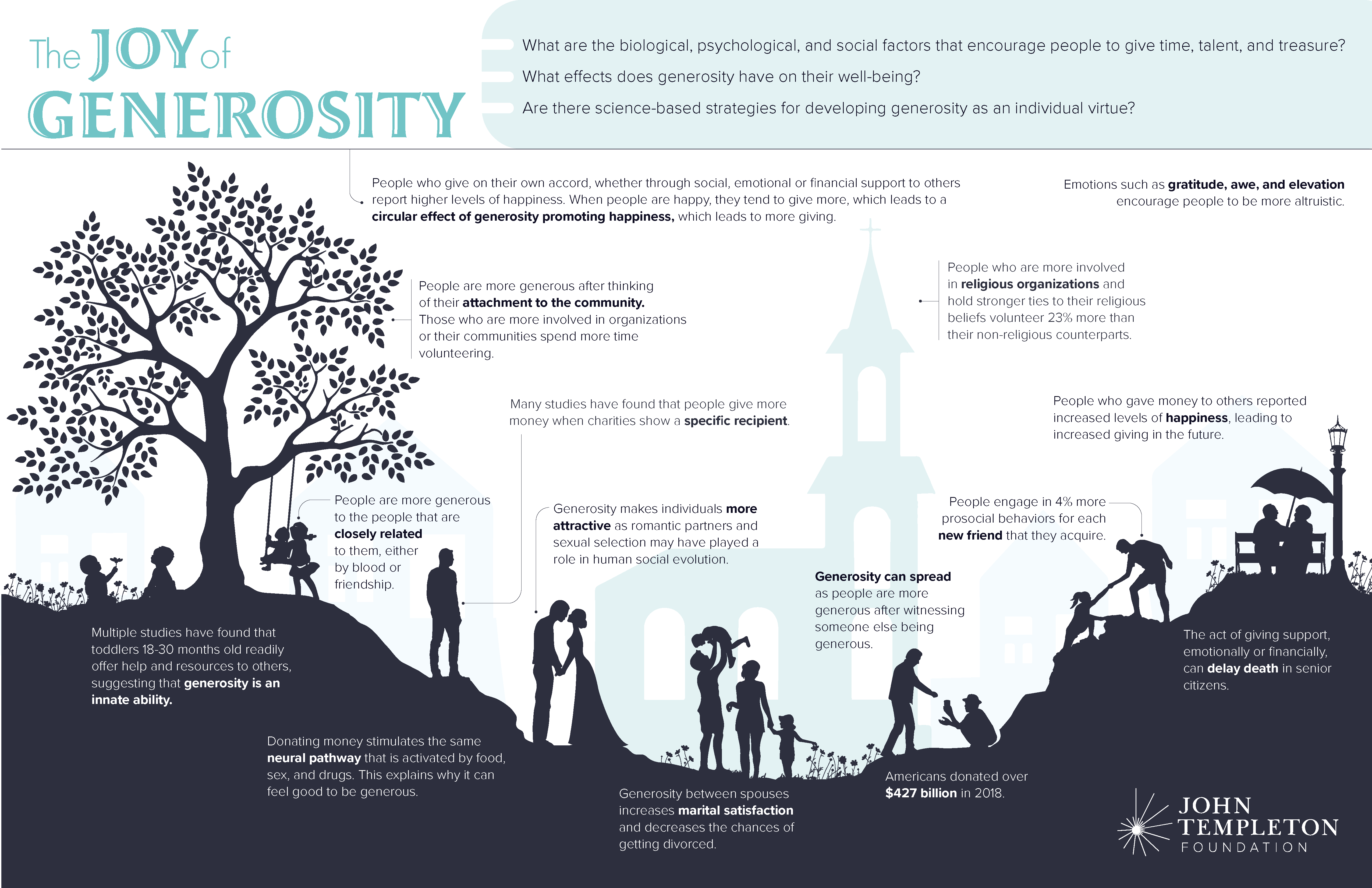In honor of National Give Something Away Day on July 15th, we’re spotlighting some of the fascinating work on the science of generosity that we’ve funded over the years.
See the full infographic here.
After decades of research suggesting that human nature is intrinsically selfish, recent studies have shed new light on the subject of generosity that may indicate otherwise.
“There is growing evidence that the human brain is wired for generosity. Several studies have found evidence that when people help others, their brains show activity in fundamental neural circuits such as those that underlie parental caregiving,”
— Dr. Summer Allen, Greater Good Science Center
In 2018, the John Templeton Foundation commissioned a detailed overview of the science of generosity, which dives into many of the various biological, psychological, and social factors that encourage people to give time, money, or goods to others.
The research review, written by Dr. Summer Allen of the Greater Good Science Center, references more than 350 studies and meta-studies published in nearly 200 publications between 1971 and 2017. It also raises some important findings that help illuminate the effects of generous behavior on both the giver and receiver.
For example, while recent popular culture narratives suggest that happiness comes from focusing on one’s own needs, research shows that generous behavior towards others may actually be more likely to make you happier.
Allen says, “One study found that toddlers younger than two exhibited more happiness when giving treats to a puppet than when receiving treats themselves and were even happier when they gave some treats from their own bowl.”
Join us in celebrating the joy of generosity today by participating in National Give Something Away day!
Read the science of generosity research review here.

